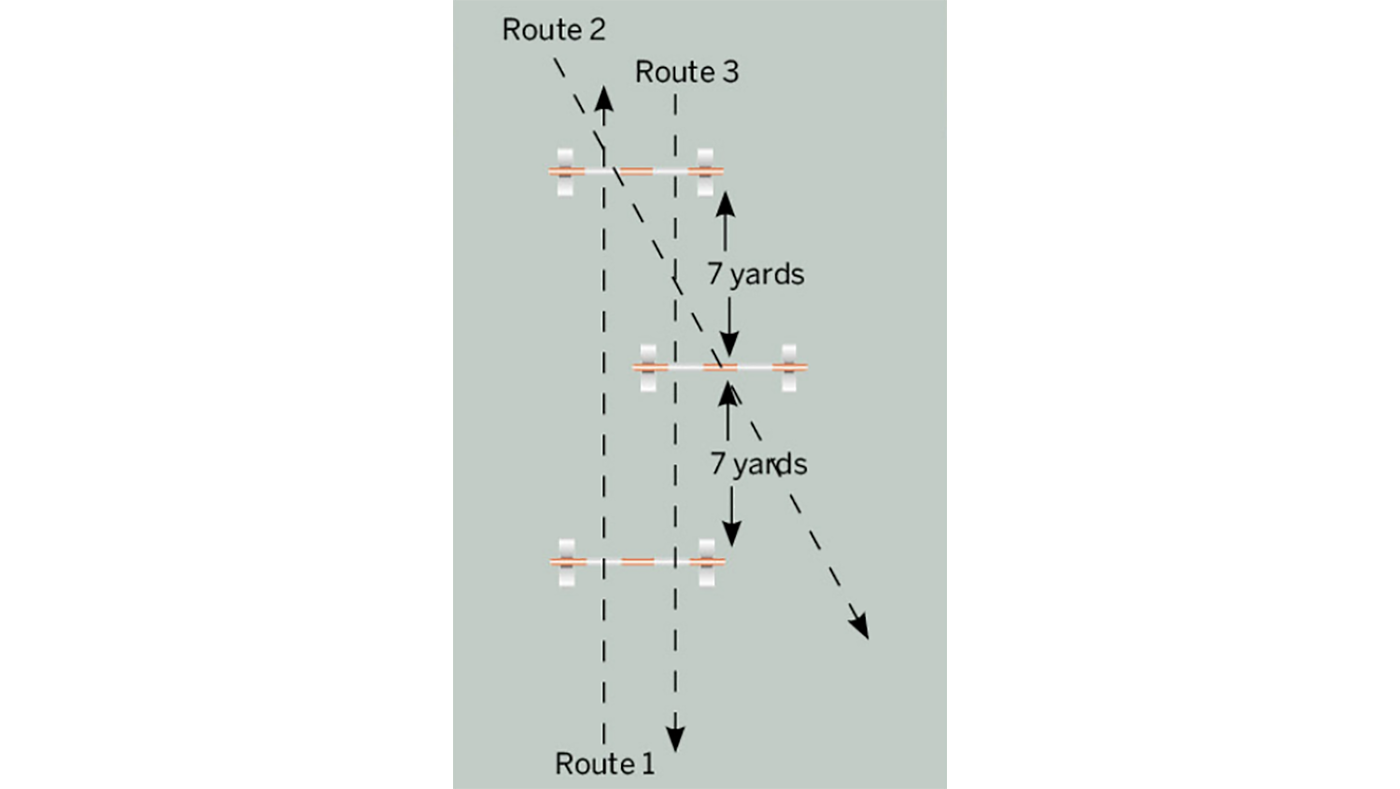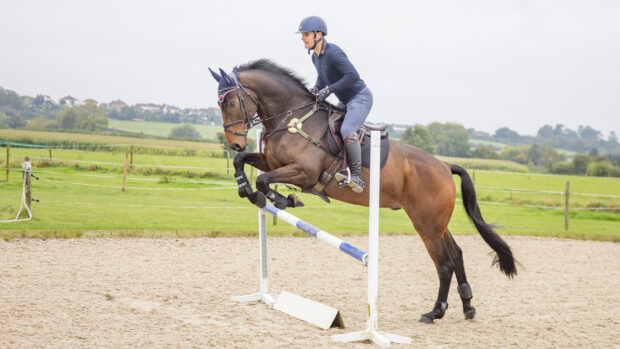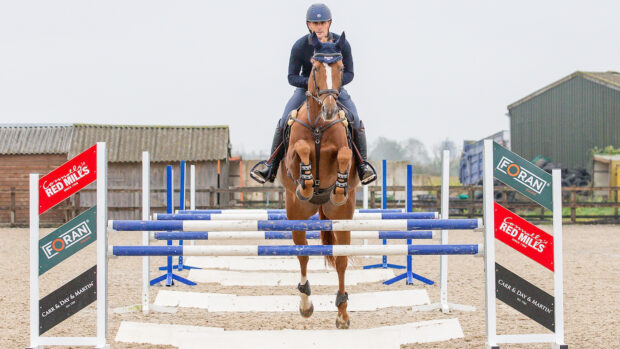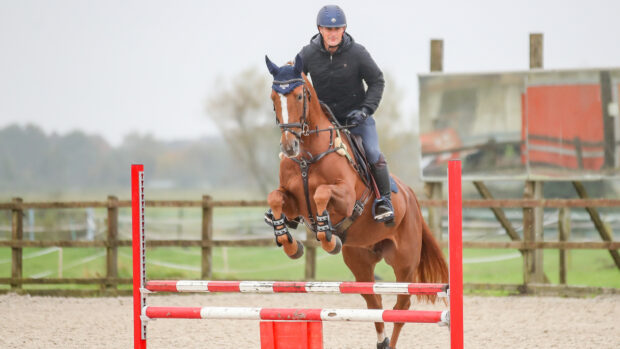The event rider provides his exercise for keeping your horse on a dead-straight line on the cross-country course
Event rider Alex Bragg was long-listed for the 2017 Europeans and 2018 World Equestrian Games with Zagreb, with whom he won the Event Riders Masters at Jardy, France, last season (pictured). He runs a string of 20 horses from his base in Bridgwater, Somerset.
Alex explains: “This exercise teaches a horse not to deviate from a line. Your job is to present your horse in the right rhythm and balance — he does the rest. Horses pick it up quickly, plus, as it’s in the school with multiple options, a glance-off here doesn’t stick in their mind as a run-out on a cross-country course.”
Training the stars
“Shannondale Percy had been known to run out, so when I took him on in 2018 I tried this exercise. It has not only stopped him rushing, but it has taught him to stay on a straight line and place his front feet exactly where I want them in front of a jump.
“I started using this exercise on the eight-year-old Bonmahon Blue Mist when he was four. As a youngster he was hot, sharp and not naturally gifted, but he now has an incredible cross-country record, which I believe is the result of this exercise.”
Tackling the issue

1. Build three upright fences with seven yards between each, and with the middle one offset by four to five feet. Approach in a jumping canter and ride a square, balanced turn, lining your horse up so that you both can see to the end of the grid. Horses are flight animals and always look for a way out, so the fact that you are looking to the end of the grid and beyond will keep him on the correct line.
2. Negotiate element one and three, bypassing element two (route one). Attempt it a few times. If your horse is inexperienced, use poles on the ground instead, raising them to cavaletti height and finally jump height — to a maximum of 1.20m — when he is ready to move on.
3. Jump from element three to two or two to one (route two) on a diagonal line.
4. Provided your horse is looking ahead and picking up, tackle the most difficult line, jumping all three elements (route three). Element two can be moved inwards to make it wider for youngsters. Make the fence narrower as your horse gains confidence.
Continued below…
You might also be interested in:

#SundaySchool: Imogen Murray on the bounce grid exercise

#SundaySchool: Ben Way on improving a horse’s focus and rideability

Subscribe to Horse & Hound magazine today – and enjoy unlimited website access all year round
Consider this…
- Ensure your horse is established in this exercise at least two months before taking him cross-country schooling.
- If you have a horse who is struggling or trying to run out, try guide rails temporarily on routes one and three.
- Soften your hands forward and sit as still as possible, but be ready to react if your horse backs off. Avoid throwing your body forward up his neck.
For all the latest equestrian news and reports, don’t miss Horse & Hound magazine, out every Thursday



